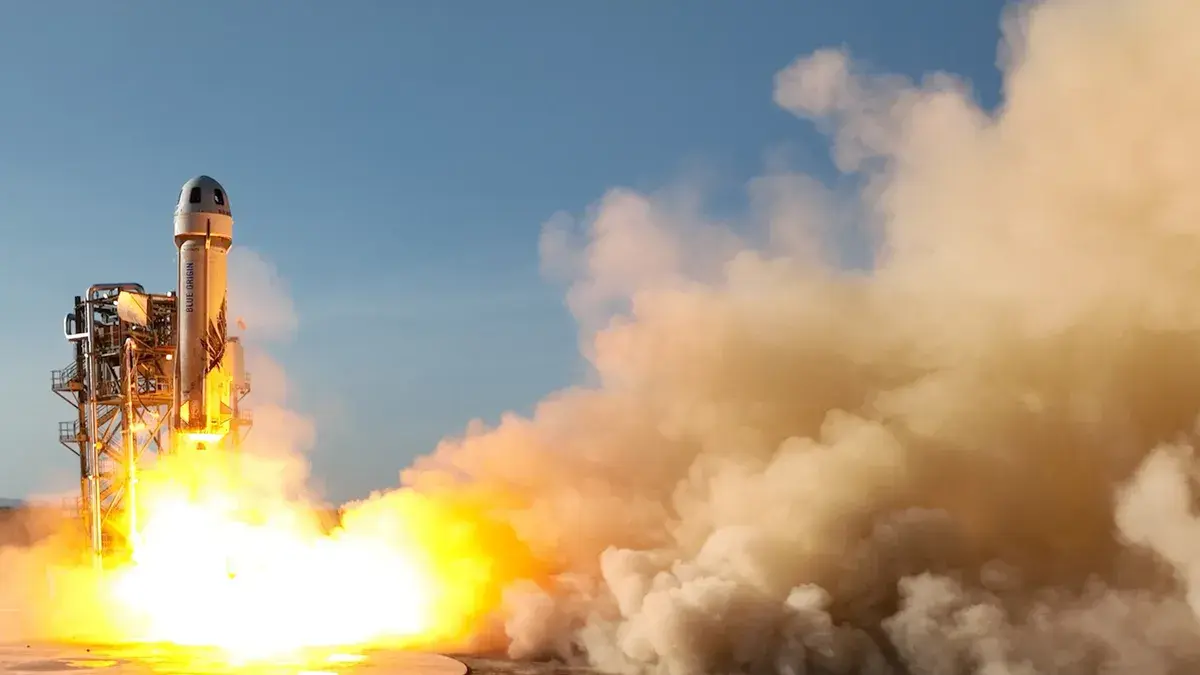
By Chris Young,
Published by Interesting Engineering, 13 September 2023
New Shepard might fly again surprisingly soon, though the company has yet to make an official announcement.
A year ago, on September 12, Blue Origin’s New Shepard suborbital rocket crashed into the desert having suffered an anomaly.
The capsule escape system worked as intended, jettisoning a payload of scientific experiments away from the rocket for a parachute-assisted landing. Thankfully, no crew was onboard for what would have been a terrifying ride.
Since then, as Space.com points out, Blue Origin announced it started implementing corrective actions. Still, the New Shepard rocket relaunch is taking time, and Blue Origin has not announced a rough timeline for its return.
Blue Origin’s New Shepard hasn’t flown for a year
On its last flight for the mission, NS-23, Blue Origin’s New Shepard rocket, encountered the problem about 65 seconds after launch. The capsule escape system worked as intended, and all 36 research payloads aboard the rocket landed intact.
One of Blue Origin’s customers, Draper, told Interesting Engineering earlier this year that its science instruments were retrieved in good condition, and it could conduct its experiments.
Blue Origin subsequently opened an anomaly investigation into the incident. It released its results in March, stating that the nozzle on the rocket’s first-stage BE-3 pm engine suffered a “thermo-structural failure” that caused a thrust misalignment and triggered the Crew Capsule escape system.
The company then announced it had begun implementing corrective actions, including design alterations to the suborbital-class rocket’s combustion chamber.
In the March announcement, the company explained that it hoped to return to flight “soon,” and its first mission would be to relaunch the research payloads from NS-23.
Then, during a keynote speech at the Financial Times ‘Investing in Space’ event on June 6, Blue Origin CEO Bob Smith said the company is only a “few weeks” away from relaunching Blue Shepard.
Blue Origin’s past and future crewed flights
However, almost half a year since Blue Origin’s March update, there is no scheduled date for that relaunch.
NS-23 was Blue Origin’s 23rd New Shepard mission. Six of those missions carried space tourists to suborbital space, where they experienced weightlessness for a few minutes before descending for a parachute-assisted landing.
Blue Origin and Amazon founder Jeff Bezos was part of the very first group to fly aboard New Shepard. In June, his partner Lauren Sánchez announced she will lead an all-female Blue Origin crew once crewed flights resume.
The last crewed New Shepard flight occurred in August 2022, a month before the New Shepard anomaly during the research mission NS-23.
According to Ars Technica senior space editor Eric Berger, two sources with insider knowledge claimed Blue Origin is on course to perform an uncrewed test flight in early October. If all went according to plan, the company would fly a crew to suborbital space in February next year.
Since New Shepard was grounded, Blue Origin competitor Virgin Galactic has launched four crewed missions aboard its VSS Unity space plane, which also flies to suborbital space. VSS Unity also allows passengers to experience weightlessness for a few minutes, but it then flies back to Earth for a runway landing.
See: Original Article




